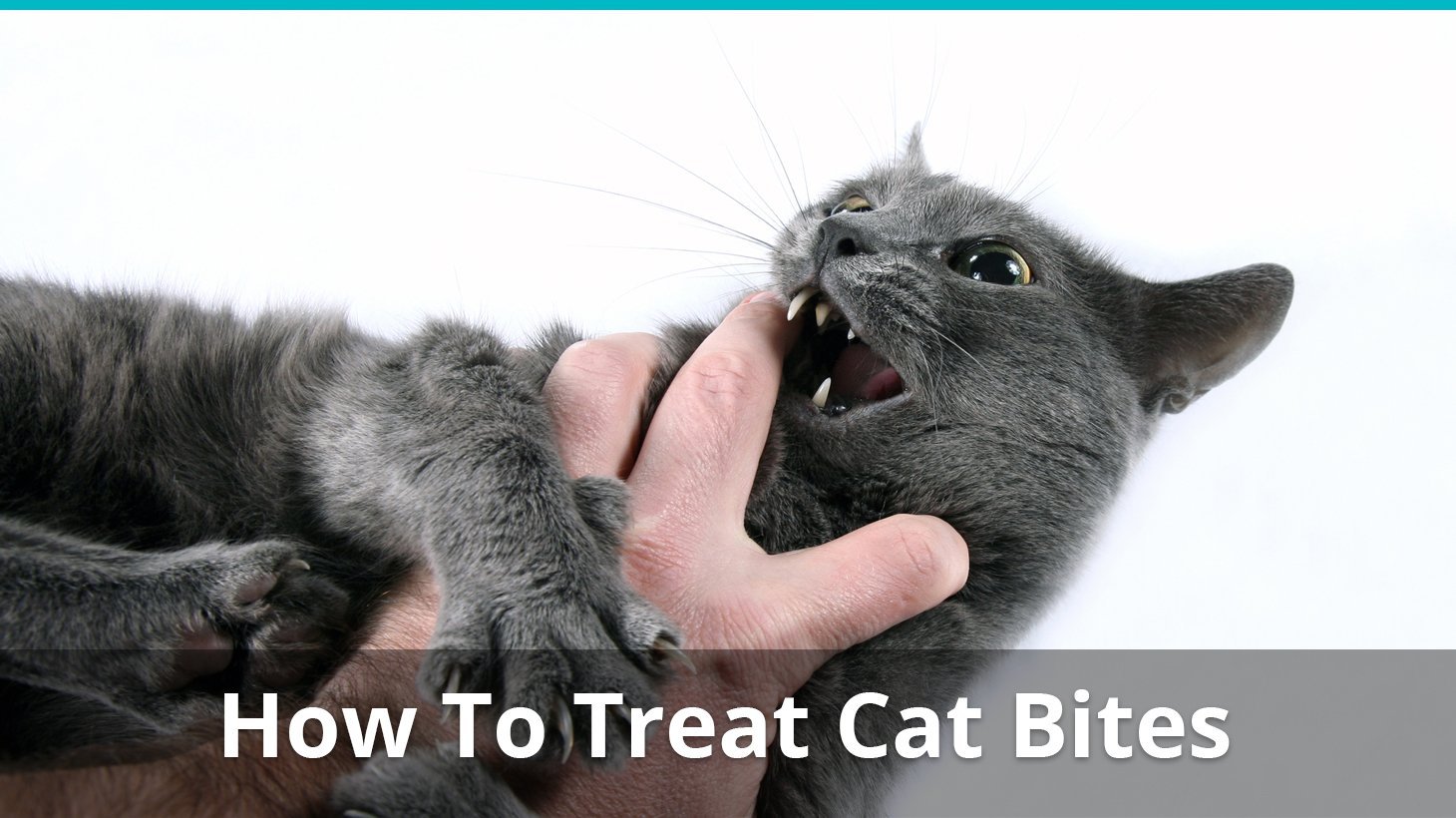Cats are among nature’s best hunters. Even the laziest, most laid-back, and amicable kitty on the planet can turn into a vicious predator, fiercely defending its territory and personal space.
Unlike us, human beings, cats don’t use their teeth to grind their food. Instead, they use their pearly whites for shredding meat, for grooming purposes, and of course – for attacking and defending. Similar to its claws, your pet kitty’s teeth can leave nasty wounds and infections or even spread diseases.
Even if you’re maintaining your furball’s dental hygiene, cat bites can still be dangerous.
Feline creatures carry a wide variety of bacteria in their mouths. Their sharp incisor teeth can easily pierce human or animal skin, leaving deep wounds, which are prone to infection.
And it’s not just the most commonly-known diseases like rabies and tetanus that you need to worry about. Cats can transmit numerous diseases to other cats, dogs, and humans alike.
How To Treat Cat Bites?
When cat bites haven’t broken the skin tissue or the wounds are superficial, they can be treated at home without the need of a doctor or a veterinarian.
However, sometimes the bite wound can be so severe that it can damage tendons, ligaments, bones, or joints. In either case, you need to treat the affected area to prevent infection.
If the bite is more severe, you will likely need to see a doctor.
Treating Cat Bite Wounds On Humans
As mentioned above, even if your pet is the laziest and most friendly cat out there, it can still attack you.
Felines are territorial and infamously whimsical. Their behavior can become quite unpredictable at times. If your pet is startled, feels jealous, gets injured, or just irritated, it can bite you out of the blue.
So, how do you deal with the bitten area?
Immediately wash the wounded spot with warm water and soap.
After the wound is clean and the bleeding has stopped, inspect the severity of the bite. If it’s superficial, use hydrogen peroxide, iodine, or another disinfectant and protect it from infection with a band-aid.
If your indoor cat has passed its annual check-ups, its shots are up to date, and it doesn’t have any diseases, there’s no reason to panic.
However, if you were bitten by a feral cat, you should immediately seek a doctor for preventative shots against rabies and tetanus.
Feral cats can transmit a plethora of diseases. The same goes for indoor kitties, which are allowed to roam the outdoors unsupervised.
If a child has been bitten, don’t apply any antibiotic ointments without consulting with a doctor. Also, keep in mind that a child’s immune system may be underdeveloped. As such, kids will be more prone to suffering from secondary bacterial infections from cat bites than adults.
Treating Cat Bite Wounds On Cats And Other Animals?
If you have a multi-cat household, or you own a cat and a dog, or you’re simply allowing your feline furball to go outside, your pet can easily receive cat bites from other felines.
You can treat the cat bite mildly by washing the wound with lukewarm water and soap. However, chances are your pet will try to avoid any physical contact due to the pain.
If you own a long-haired breed like the Persian or the Maine Coon, you might need to trim the fur around the wound to be able to inspect its severity. Handle the kitty gently and, if needed, wrap it in a warm towel or blanket to prevent any possible attacks.
What To Expect From A Visit To The Vet?
Your veterinarian will ask about the animal’s health condition, its medical records, and its shots. If it has been bitten by a feral, it will need vaccinations. Moreover, your cat may need a recovery collar or cone to prevent touching and licking of the wounded spot.
Felines and other house pets can easily get tissue and bone injuries from cat bites. The longer you wait before visiting the vet’s office, the worse the wound will get.
In some severe cases, it’s possible that your pet may require antibiotics or other medication to prevent further tissue damage, secondary infections, and other similar problems. Common troublesome signs, which indicate the cat bite is severe, include swollen areas, puss drainage, pain, fever, and aggressive behavior.
Whether your pet got bitten or you’re the one suffering from a cat bite, you must immediately wash and disinfect the wound. Then check the severity before taking any further action.

